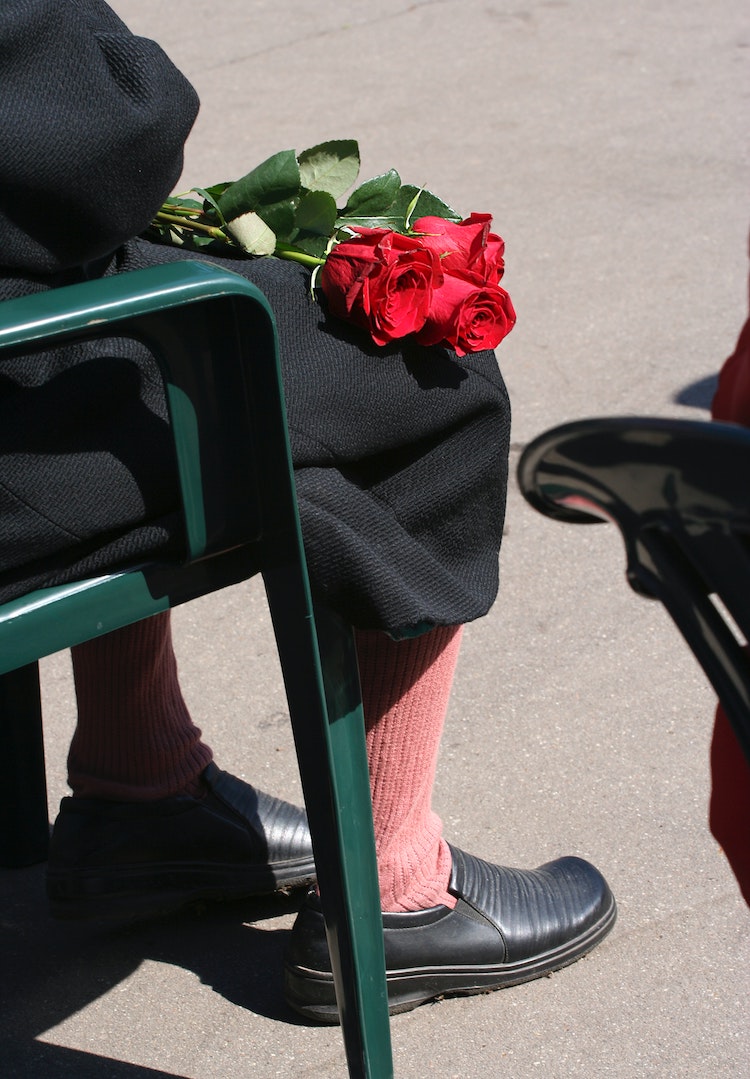What I wish people knew about grieving
WORDS BY JESSICA SOFARNOS
“One of the hardest parts of losing someone close to you is the loss of an imagined future.”
When my Mum suddenly died 19 months ago, the event itself and the experience that followed were too traumatic to understand. Yes, I came to acknowledge the very graphic and minute details of fatal cardiac arrest, but the loss was still completely illogical; my response to death was only processed in my right-side brain.
Like my mother, I have always been a person with big feelings and a burning desire to find somewhere to put them, and this was amplified in the early stages of grief. I was writing, moving, crying, screaming; trying any avenue of expression that might shave off some layers of weight that sat rigid like concrete on my chest.
For more content like this, tap through to our Life section.
Looking back at myself during that time, I both disconnect from that person and feel her deep in my gut. A year ago, I was merely a floating body. I walked in the shape of a person people recognised but I was deeply confused; dissociated and disorientated from my brain to my limbs, to my face in the mirror.
Back then, I looked to others for a blueprint of how I might get through the initial days, and for an example of what my future might look like after loss. Today, I feel grateful that although this grief will always be present, I am able to personally validate the advice given by those who guided me.
No matter how heavy and untiring being a witness to death may appear to be, I can attest that it is sure to evolve and change, and it is within that evolution that grief has shown itself to be an experience more complex and profound than I could have ever imagined.
Throughout the journey of the last year and a half, I have been affected by my mum’s passing in ways that continue to surprise and jar me, specifically by the physical and cognitive dysfunctions that you simply wouldn’t think of until it happens to you. Yet if we discuss them openly, we begin to create a world that is more compassionate and empathetic to the experience of others.
It is imperative that we make a conscious effort, no matter how uncomfortable it may feel, to understand the incessant and varying layers of how death can change people. The death of someone close dramatically affects those who are left behind, and we will be better able to hold space to support them – and prepare ourselves for the future – if we can recognise the symptoms of what they may be going through.
Physical pain
In her book on grief, The Year of Magical Thinking, writer Joan Didion cites the many studies that have been published on grief that date as far back as the late 1800s. One notes that those distressed by the shock of mourning are “not only upset mentally, but are all unbalanced physically”, and that “no matter how calm they may be, no one can under such circumstances be normal”.
As a sufferer of chronic pain, the grieving period has certainly increased the number of flare-ups I experience, particularly during periods of high tension or stress. I have also been hospitalised for stroke-like migraines and acute bloating and digestive issues, two ailments I hadn’t experienced in any severity before Mum died.
After many scans and appointments with different specialists across both Eastern and Western medicine, I have been advised that there is nothing sinister lurking, and it is likely a direct response to my body’s sensitivity to grieving. Clinical psychologist Timothy Robinson says that the affliction of loss can be confusing for mourners as the pain centres in the brain do not discriminate between the emotional and physical.
I continue to witness first-hand the inherent link between my mental health and the sensitivity of my pain receptors, where the anxiety around the state of my health goes hand in hand with the condition of my body’s response to that anxiety. If you or someone you love are experiencing physical symptoms in response to death, firstly I encourage you to ensure you’re excluding all serious possibilities with the help of a qualified professional.
But then I recommend looking toward embodying practices such as meditation and breathwork, or movement like yoga or dance. The greatest relief, however, has been seeing a psychologist to help monitor where and when the pain is coming up, and how that may relate to elements of my psyche that I have not yet unpacked or discussed.
Altered cognitive abilities
I used to take pride in my ability to recall things. In school I would get through exams with my photographic memory, seeing all of my notes on the page, and as an actor, I have benefited from this when needing to learn lines quickly and thoroughly. This ability to rely on my memory has significantly declined in the wake of loss, and I am often forgetting the names of people I’ve known for years which makes me silent and anxious in social settings where I would usually flourish.
Robinson says that brain fog and ‘dissociation’ from the world that others live in after a death is a protective response from your trauma brain. As the subconscious tries to process both the painful event and the changes in life that follow as a result, cognitive functions such as memory, behaviour and mood can be affected.
In Freud’s 1917 work, Mourning and Melancholia, he discussed how loss “involves grave departures from the normal attitude to life”, and psychoanalyst Melanie Klein made a similar assessment in 1940 when she stated that “the mourner is in fact ill, but because it is a state of mind that is so common… we do not call mourning an illness”.
In our Western culture where we expect grief to be overcome due to ‘a lapse of time’, it’s beneficial to recognise that it’s normal for grief to overlap with features of depression and burnout, and elicit depressive-like episodes that can continue in both the long and short term.
Sense of self and loss of identity
One of the hardest parts of losing someone close to you is the loss of an imagined future, and this projected image of what your life will be is so deeply rooted in your understanding of who you are today. The Year of Magical Thinking details a study from 1992 where one of the two outlined ‘types’ of grief was a more extreme experience of traumatic symptoms as a direct response of the “survivor relying heavily on the deceased for pleasure, support or self-esteem”.
Despite being surrounded by incredible support since Mum died, I have been curious as to why I have still felt so alone. Robinson reassures me that this is a natural experience in the wake of death as no one can ever match the kind of connection one has with the deceased, nor should they expect others to.
This is however very difficult to make sense of and accept, particularly when so much of your identity can be tied to the presence of another, so Robinson notes that it takes time for the “software” to drive adequate change in our brain where the magnitude of such a loss is accommodated (particularly of a spouse, parent, child or sibling).
Understanding that no one will fill the space my mum has left behind has been instrumental in both the acceptance of her passing and my ability to move forward. You can’t possibly replace the presence of someone you love, but you can lean into the support of those you trust. In doing so, you will be encouraged to find new avenues of fulfilment and joy that revolutionise your identity in ways that are unexpected and productive.
It’s sobering that my mum doesn’t know where I work or that she won’t one day meet my children, but recognising these facts early on and having others acknowledge how they will impact me long-term has been incredibly healing. Because if we continue to see other people’s losses as far away things that we can’t imagine happening to us, we will never get better at saying “I’m sorry”.
If you’re struggling with grief, try these resources.













